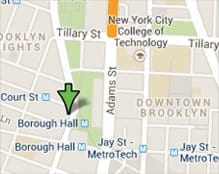Do you know your Miranda rights?
You may think you understand your Miranda rights based on the many New York TV shows or movies you have seen over the years. But do you really?
Your four Miranda rights apply in situations where law enforcement officials arrest you for an alleged crime, and include the following:
- You have the right to remain silent.
- Anything you say can and will be used against you in a court of law.
- You have the right to an attorney.
- If you cannot afford an attorney, one will be appointed for you.
The Miranda warning gets its name from Miranda v. Arizona, the 1966 U.S. Supreme Court case that established them. Unfortunately, however, FindLaw explains that officers only need to give you your Miranda warning at the point they arrest you. Before that, the law does not require them to do so. Nevertheless, you have these rights at all times because they flow from several rights guaranteed to you in the Bill of Rights attached to the U.S. Constitution.
Constitutional rights
Three separate Amendments form the basis of your Miranda rights, as follows:
- Your Fourth Amendment right to remain free from illegal governmental searches and seizures
- Your Fifth Amendment right not to incriminate yourself
- Your Sixth Amendment right to have an attorney present any time law enforcement officers question you
Applicability
While your Miranda rights per se only apply once officers arrest you, your constitutional rights apply at all times. Nevertheless, most people erroneously believe that they must answer any question an officer asks them. This is not true. The only thing you have to do is give your identification information to officers if and when they ask you to. Beyond that, you need not voluntarily talk with officers.
Naturally you should never antagonize an officer or “mouth off” to him or her. But you have every right to respectfully refuse to answer any further questions unless and until you have an attorney present during the questioning. In addition, once you tell officers that you want an attorney, they must stop questioning you and wait until your attorney arrives before proceeding any further.
This is general educational information and not intended to provide legal advice.
Office Location
Neil S. Ruskin
188 Montague Street Suite 900
Brooklyn, NY 11201
Local: (718) 237-1547
Fax: 718-875-4011












